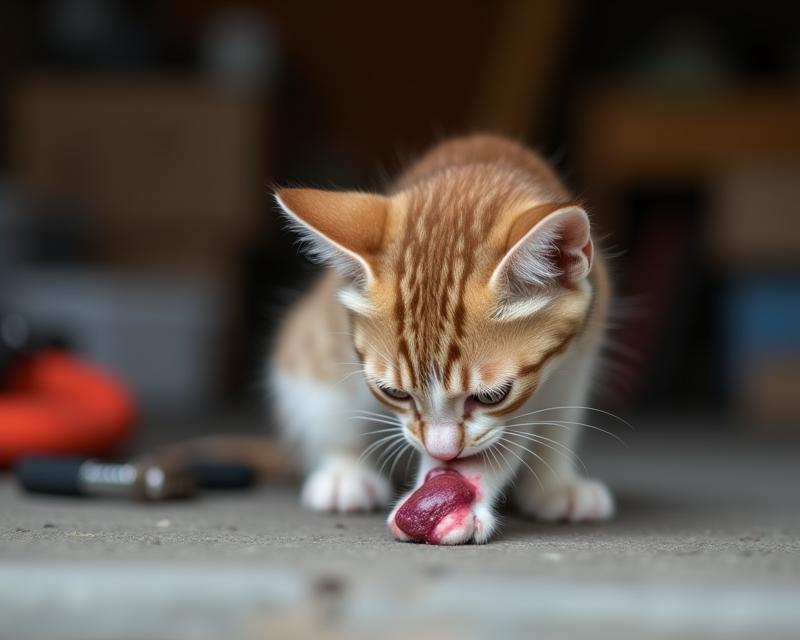Why Does My Cat Lick Wounds?
Publish in Health el 28/06/2025 18:45
Why Does My Cat Lick Wounds?
It's a common sight: your feline friend gently (or not-so-gently!) licking a wound. While it might seem unhelpful, there's often a reason behind this behavior. Understanding why your cat licks wounds can help you determine if it's a normal, helpful instinct or something that requires veterinary attention.

The Instinctive Healer
Cats are naturally clean animals, and grooming is a fundamental part of their routine. This grooming behavior extends to wound care. Licking can help remove dirt, debris, and even bacteria from the affected area. Their saliva contains enzymes with mild antibacterial properties, which can contribute to healing. Think of it as a feline form of first aid!
When Licking Becomes Problematic
However, excessive or obsessive licking can actually hinder the healing process. Constant licking can irritate the wound, introduce new bacteria, and delay closure. It can also lead to infection. If you notice your cat spending an unusually long time licking a wound, or if the wound appears red, swollen, or is oozing pus, it's time to consult your veterinarian. Also, be aware of any signs of pain or discomfort your cat exhibits while licking.
What Can You Do?
So, what should you do if your cat is licking a wound? First, assess the wound. Is it minor and clean, or does it need professional care? If it's minor, you can try to gently distract your cat when they start licking. A simple redirection with a toy or a treat can work wonders. Elizabethan collars (also known as 'cones of shame') are often necessary to prevent licking, especially for larger or more sensitive wounds. Your vet can advise you on the best course of action. Never try to forcibly stop your cat from licking, as this can cause stress and anxiety.
When to See a Vet
Always contact your veterinarian if:
- The wound is deep or bleeding heavily.
- The wound shows signs of infection (redness, swelling, pus).
- Your cat seems in pain.
- The licking is obsessive and not improving.
- You are unsure about the wound's severity.
Your vet can properly assess the wound, provide appropriate treatment, and offer guidance on managing your cat's licking behavior. With a little understanding and proactive care, you can help your furry friend heal comfortably and safely.





